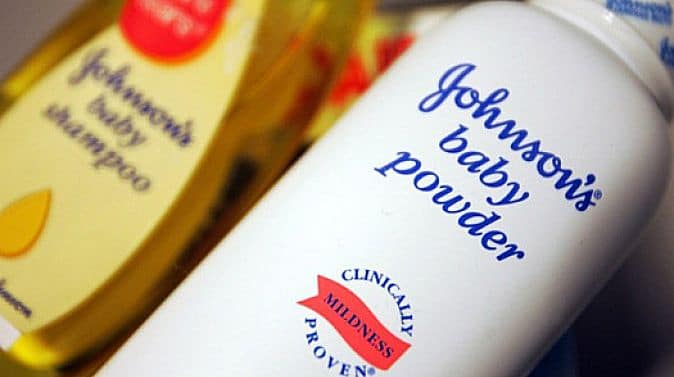Sentence imposed by the Los Angeles court on the pharmaceutical multinational
FABIO DI TODARO – Pubblicato il 22/08/2017 – LA STAMPA
It is not the first such conviction to be recorded in the United States. For the same reason, in May, a claim for damages equal to 55 million dollars was imposed against Johnson & Johnson. But the bill could rise again, since there are more than two thousand lawsuits filed against the company. The «Baby Powder» talcum powder made by the multinational almost always ended up in the dock, which at the end of each proceeding in any case announced its willingness to appeal against the first instance sentences.
Claims for over $300 million
The news received wide coverage in the main US and English media: from «New York Times" at the "BBC». On the other hand, the topic of the alleged carcinogenicity of talc has been recurring for several years now: at least since the beginning of 2016, when Johnson & Johnson was sentenced to pay the first compensation for an amount equal to 72 million dollars, to be paid to the family of a woman who died before the sentence was pronounced.
Al momento le richieste di indennizzo oltreoceano supererebbero già la quota di 300 milioni. Molti cittadini si stanno rivolgendo ai giudici dopo aver utilizzato per anni sulla cute dei propri figli il borotalco, allo scopo di impedire le screpolature e rinfrescare la biancheria intima prima di fargliela indossare. Il sospetto è che il prodotto – un minerale naturale composto da magnesio, silicone, ossigeno e idrogeno – possa raggiungere l’ovaio attraverso i genitali esterni e determinare uno stato di costante infiammazione. Ma al momento la comunità scientifica non sembra essere convinta dell’esistenza di questa correlazione.
What does science say?
Asbestos causes the eventual inhalation of talc to increase the risk of the onset of pleural mesothelioma or lung cancer. "But at the moment there is no evidence that demonstrates the dangers of talc," added Pinto, recalling that since 1994 it has been forbidden in Italy to manufacture products containing asbestos fibres.
Purely as a precaution, this is the recommendation that can be read in a publication on ovarian cancer prepared by the Umberto Veronesi Foundation , «it is advisable not to use talcum powder in intimate areas: vulva, vagina and perianal area. Its use in other parts of the body is not associated with the risk of developing ovarian cancer or in other parts of the body.
Twitter @fabioditodaro
Related news: Ovarian cancer: Johnson & Johnson will have to pay 55 million dollars
Johnson & Johnson to pay $72 million to the family of a woman who died of ovarian cancer
Johnson & Johnson Makes Historic Commitment to Remove Cancer-Causing Chemicals from All Its Products
Asbestos in commercial cosmetic talcum powder as a cause of mesothelioma in women
Genital use of talc and risk of ovarian cancer: a meta-analysis
